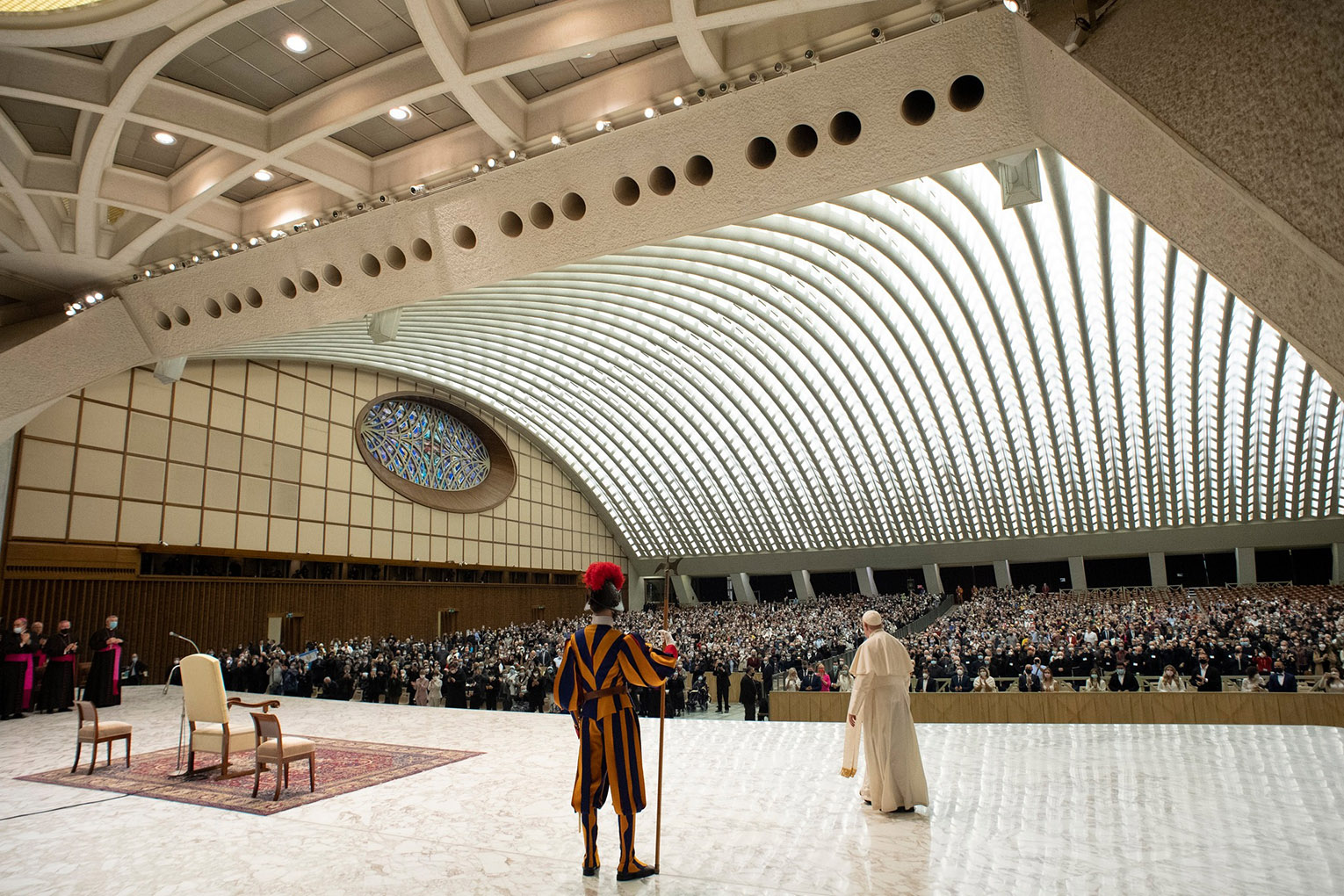
by Romano M. Bulatao, PhD
As far as the Gospel accounts are concerned, there were not many details and elaborations about Saint Joseph. In the Gospels according to the evangelists Matthew and Luke, the name of Joseph appeared only a few times (e.g., Mt.1-2, Lk.1). It is remarkable to notice though, that during these few times that the name of Joseph is mentioned, suggested crucial events in the life of Mary and the child Jesus. For Pope Francis, “God trusted Joseph, as did Mary, who found in him someone who would not only save her life but would always provide for her and her child.” In other words, Saint Joseph has supported and protected Mary and the child Jesus during these hard times when the life situations of both were at stake.
Pope Francis states that “the greatness of Saint Joseph is that he was the spouse of Mary and the father of Jesus.” As a husband, Saint Joseph was portrayed as loyal, gentle, loving, and caring to his wife Mary. As a father, he provided material and religious sustenance, protection, guidance, and teachings to the child Jesus because Joseph is known to be a faithful Jew. As a person, Saint Joseph is believed to be a religious man and a humble one as a carpenter. Pope Francis contends that “Saint Joseph was a carpenter who earned an honest living to provide for his family. As a worker, Saint Joseph is called by many as “the silent worker.”
Furthermore, Saint Joseph was portrayed in the Gospel stories as “a silent man” in the sense that he never spoke. And yet, it is important to know that while he was so silent, his actions spoke louder than any words he could even utter. Moreover, Saint Joseph is a man of vision towards the mission. He has the capacity to understand the will of God and act on it in the best way he can. On the one hand, Saint Joseph seemed not to be highlighted in the Gospel stories but on the other hand, it seems that this kind of portrayal was intentional for us to notice that his “insignificance” teaches us an important aspect of life that is “being silent.” From the letters of the word “silent,” we can come up with another word, “listen,” which is precisely a typical characteristic of Saint Joseph. In the silence of his dream, “God revealed his saving plan to Joseph,” says Pope Francis. Indeed, Saint Joseph was receptive to the will of God and he immediately acted on it. While it is true that he was seldom mentioned in the Gospels, there were at least three instances when we encounter this phrase, “when Joseph awoke, he did as the Lord has commanded him to do.”
During this pandemic, silence has swallowed almost all corners of the world. The “normal” routines were brought to a kind of “purification” which forced us to face the so-called “new normal.” It is no exaggeration but literally all stopped (at least temporarily), and pave the way to our silent experiences. We were given the chance to listen and rediscovered the essential values of everything! Many old sayings like, “health is wealth,” and “time is gold,” were not just empty words but truths. Like Saint Joseph, being “silent” may bring all of us to “listen” to the signs of the time. In the words of Pope Francis, “the spiritual path that Joseph traces for us is not one that explains, but accepts.” We must be receptive to the will of God like Saint Joseph who was “silent” and yet acts “loudly” in accordance with the plan of God for the good of humanity and the whole of creation.
Although Saint Joseph was portrayed as seemingly “insignificant” he displayed a great role in his care and love for Mary and the child Jesus. Like Saint Joseph, we must work silently and collectively towards building the Kingdom of God here on earth where justice, peace, and prosperity reign. Pope Francis said, “Joseph, then, teaches us that faith in God includes believing that he can work even through our fears, our frailties, and our weaknesses.” Thus, even we sometimes think that we are “insignificant,” the truth is that God asks us to participate in the promotion of the good news of salvation – a life of kaginhawaan.
In front of the many uncertainties in the life of Saint Joseph, he was steadily silent to listen to God’s will and humbly obeyed and trusted Him. Pope Francis exhorts that “the lives of the saints too are examples to be imitated. Saint Paul explicitly says this: ‘Be imitators of me!’ (1 Cor. 4:16) By his eloquent silence, Saint Joseph says the same.” Today, as we face the various challenges brought about by the pandemic, and in the spirit of Synodality, let us make Saint Joseph our inspiration and model for us to be silent to listen!

ROMANO MACARAEG BULATAO completed his Bachelor of Arts in Philosophy (AB Philo.) in 1990 at the Claret Formation Center (now, Saint Anthony Mary Claret College or SAMCC), Quezon City. He finished his Master of Arts in Religious Studies (MA Rel. Stds.) in 2003, and his Master of Arts in Philosophy (MA Philo., cum laude) in 2014, both at the Saint Louis University (SLU), Baguio City. He obtained his degree, Doctor of Philosophy (PhD) in Theology, Major in Missiology, at the Saint Anthony Mary Claret College (SAMCC), Graduate Department, [Institute for Consecrated Life in Asia (ICLA)], Quezon City. From the Academic Year 2006-2009, he served as the Department Head of Religion at SLU, and Dr. Bulatao is a professor in the same Department at present. He served as the President of the Kapatirang Claretiano Inc. – Pangasinan Chapter (KCI-PC), since 2011. He is the author of the book entitled Touching Thoughts A-Z, published in 2009 and the translator of the Novena to Saint Anthony Mary Claret (from Pangasinan language to English) published in 2015; and the Novena kay San Antonio Maria Claret (from Pangasinan language to Filipino) published in 2020, by the Claretian Publications.











